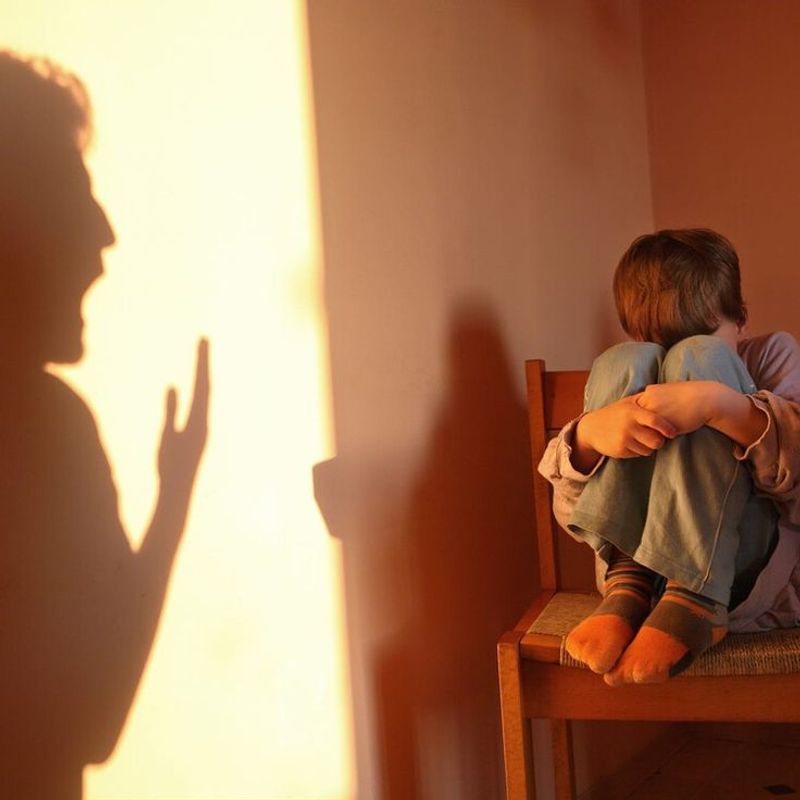Growing up, the influence of parental behavior leaves an indelible mark on our emotional and psychological development. While many parents strive to provide a nurturing environment, some practices can inadvertently cause harm. This article delves into ten signs that may indicate harmful parenting, supported by psychological research. These signs can manifest in various ways, from emotional neglect to manipulation, each leaving a unique imprint on an individual’s adult life. By understanding these signs, individuals can better identify and possibly heal from past wounds, fostering healthier relationships and a more stable sense of self-worth. This exploration aims to shed light on experiences some may have faced, offering insight and understanding.
Emotional Invalidation

“Stop being so sensitive” is a phrase that can echo hauntingly for those who have experienced emotional invalidation. This dismissive approach to feelings often leaves a child questioning the validity of their emotions. Growing up with this form of harmful parenting, individuals may find themselves struggling with emotional self-trust.
The constant dismissal of feelings teaches them to undermine their emotional responses, fostering self-doubt. Psychology highlights how such experiences can lead to challenges in emotional regulation and expression in adulthood. This lingering impact underscores the importance of validating one’s own emotions and seeking environments where they are respected.
Comfort can be found in learning to trust one’s feelings, a journey towards emotional healing and authenticity.
Chronic Criticism Over Encouragement

In homes where criticism overshadowed praise, many children grow up with an internal dialogue of self-criticism. This environment emphasizes what wasn’t achieved rather than celebrating successes. Such upbringing fosters a deep-rooted inner critic, often manifesting as low self-esteem or perfectionistic tendencies in adulthood.
This harsh focus can make achievements feel insignificant, leaving an individual constantly striving for unreachable standards. According to psychological studies, this pattern creates a narrative of inadequacy, affecting personal and professional lives.
Breaking free involves recognizing the value of encouragement and self-compassion. Embracing strengths and acknowledging efforts can slowly dismantle the critical voice that echoes from childhood.
Conditional Love and Approval

Conditional love can feel like chasing a shadow, always elusive. In families where acceptance hinged on meeting certain expectations, children learn to equate worth with achievement. This form of parenting encourages seeking external validation, rather than nurturing a stable sense of self-worth.
As adults, they may struggle with self-acceptance, constantly seeking approval to feel valued. Psychology reveals that this can lead to anxiety and identity confusion, as self-worth becomes intertwined with others’ perceptions.
Building a foundation of unconditional self-love is crucial. Learning to appreciate oneself without conditions can transform the narrative, fostering confidence and a genuine sense of self.
Lack of Boundaries or Overcontrol

In homes where boundaries were either absent or overly rigid, autonomy often felt like a distant dream. Parents who overstepped personal limits or controlled every decision left children grappling with codependency and fear of independence.
This upbringing can make adulthood a challenging landscape, where decision-making feels foreign and daunting. Psychology links such experiences with struggles in autonomy and forming healthy relationships.
Cultivating personal boundaries and practicing autonomy are crucial steps towards empowerment. Embracing individuality and learning to make decisions fosters a sense of control and freedom, unraveling the strings of overcontrol.
Neglect of Emotional or Physical Needs

Even in homes where basic needs were met, neglecting emotional needs can leave profound scars. Being unheard or misunderstood creates feelings of isolation and worthlessness. This neglect is closely associated with depression and emotional numbness in later life.
Children raised in such environments often struggle to form secure attachments, feeling disconnected in relationships. The absence of emotional support fosters a sense of abandonment that lingers into adulthood.
Acknowledging and addressing these unmet needs can initiate healing. Building emotional literacy and seeking connections that offer understanding and empathy can pave the way to fulfilling relationships and emotional well-being.
Parentification

Being a caregiver before one’s time is a heavy burden for young shoulders. Parentification, where children are expected to assume adult responsibilities, robs them of a carefree childhood. This role reversal can create feelings of guilt and anxiety.
Psychologically, this experience often leads to adults who prioritize others’ needs over their own, struggling with self-care and boundaries. The lack of a true childhood fosters resentment and burnout.
Healing involves recognizing and relinquishing these imposed roles. Embracing one’s own needs and reclaiming the lost childhood joy are crucial steps towards balance and self-care.
Manipulation or Guilt-Tripping

Manipulation often masquerades as love in harmful parenting. Guilt-tripping and emotional blackmail create confusion around healthy emotional boundaries. This control tactic leaves lingering effects, as adults struggle to navigate relationships without guilt.
Psychology identifies this as a common feature in dysfunctional dynamics, where love becomes conditional. The blurred lines between care and control can lead to co-dependent relationships, filled with shame and self-doubt.
Understanding manipulation’s impact empowers individuals to set clear boundaries. Seeking environments that respect autonomy and emotional truth fosters healthier connections, free from the strings of guilt.
Inconsistent or Unpredictable Behavior

An unpredictable household is akin to a storm, leaving children unsure of what to expect each day. Parents who oscillate between warmth and coldness create an unstable emotional landscape. This inconsistency breeds anxiety and affects attachment styles.
Children from such environments often develop anxious or avoidant attachment styles, fearing or avoiding intimacy in relationships. The lack of a reliable emotional anchor fosters insecurity.
Recognizing the impact of this unpredictability is key to healing. Building consistent and stable relationships nurtures a sense of security and trust, essential for emotional stability.
Using Fear or Intimidation

Fear-based discipline can leave lasting trauma, echoing into adulthood. Yelling, threats, or physical punishment create an environment of intimidation. Such parenting leaves children feeling unsafe, affecting their sense of security.
Psychologically, this can lead to anxiety disorders and difficulty trusting others. The fear instilled in childhood shapes perceptions of the world as a threatening place.
Healing involves reframing these perceptions. Learning to recognize safe environments and building trust with supportive individuals fosters a sense of security and resilience, countering the effects of intimidation.
Dismissal of Individuality

Suppressing a child’s individuality is like dimming a bright light. In homes where dreams and opinions were dismissed, self-expression became a quiet rebellion. This suppression stifles creativity and self-discovery.
Psychologically, such environments can lead to struggles with identity, as individuals find it challenging to embrace their authentic selves. The absence of support for personal growth fosters self-doubt and conformity.
Nurturing individuality unleashes potential. Encouraging self-expression and celebrating uniqueness fosters confidence and creativity, rekindling the dimmed light within.

Comments
Loading…